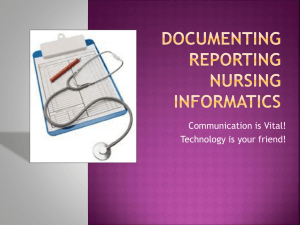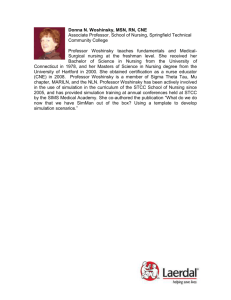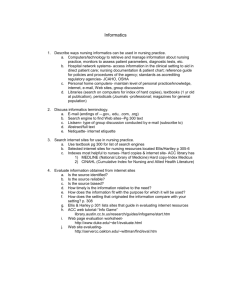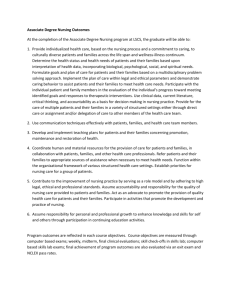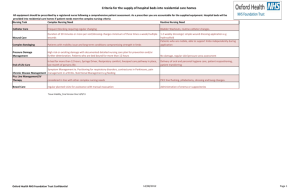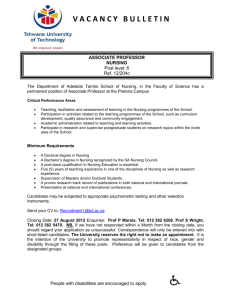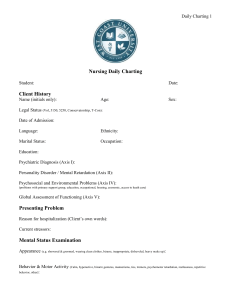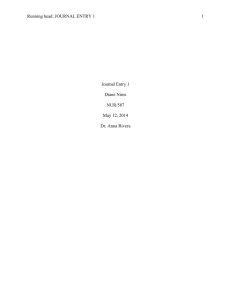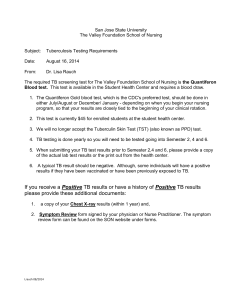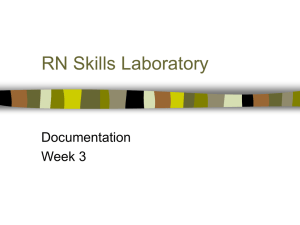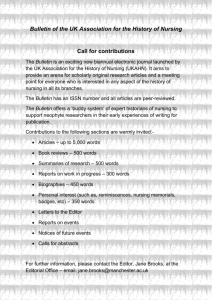Oral report
advertisement
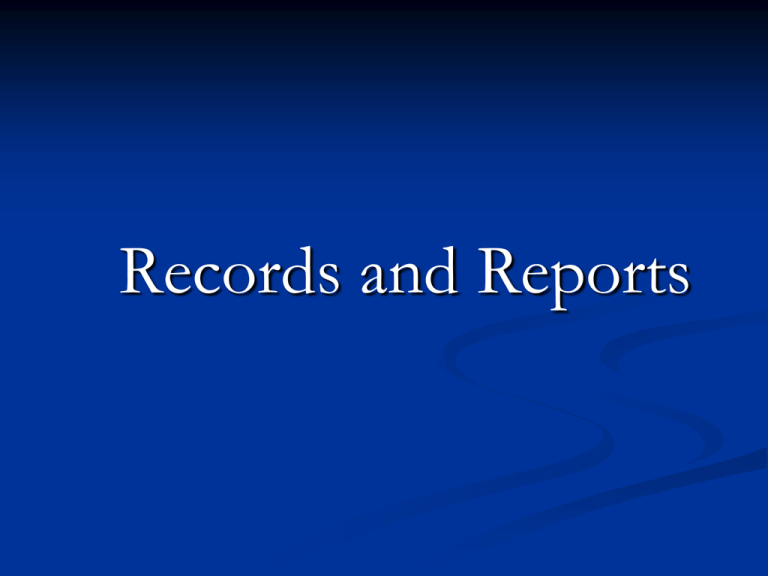
Records and Reports By D/ Ahlam EL-Shaer Lecture of Nursing Administration Mansoura University- Faculty of Nursing Outlines of records and reports -Importance of records and reports -Kinds of Records -Records used in nursing unit -Records used in nursing office: -Kinds of reports -Oral Reports -Written reports -Guideline for written report -Definitions Records Are administrative tools used to classify and prevent duplication of the information. Reports Report is a document form which include; conclusions or findings based on facts, or recommendations concerning the patient. Importance of records and reports Provide a way of communication among the health care providers Used as documentary evidence of the course of the patient illness and treatment during hospitalization. Serve as a basis for analysis, study and evaluation of the quality of care rendered to patient. Provide clinical data for research and education. Provide continuity of patient care on subsequent admissions of the patients. Serve as a basis for planning individual patient care. Assist in protecting the legal interests of the client, health organization, and health care providers. Kinds of Records (A) Records used in nursing unit 1- Patient record 2- Assignment record 3- Time record 4- Census record 5- Inventories record 6- Narcotics and Medication record (b) Records used in nursing office 1- Master record 2- Attendance record 3- Personnel record Employment record Evaluation record Kinds of reports It can be :- (a) Oral report (b) Written report. (a) Oral Report Are given when information is needed to be reported immediately not for permanency, e.g. oral reports given by head nurse to all personnel, reports about patient condition and needs. (b) Written reports It includes : 1- Day, evening and night report. 2- Incident report. 3- Report of complain. 4- Report including negligence. 5- Reports for requisition. Guideline for written report: 1. 2. 3. 4. 5. Have the patient’s name and hospital number. Initiate each entry with the data and time. Chart after providing care, not before. Chart as soon as possible. Chart only your own observation, care, and teaching. 6- Be objective in charting. 7- Use permanent black ink pens. 8- Be specific, accurate, and complete. 9- Use concise phrase, begin each phrase with capital letter and each new topic on a separate line. 10- Use only approved abbreviations. 11- Use medical terminology. 12- Follow rules of grammar. 13- Fill all spaces. 14- Correct errors in documentation. 15- Don’t erase the error. 16- Draw a single line through any erroneous information. 17- Sign each block of charting.





